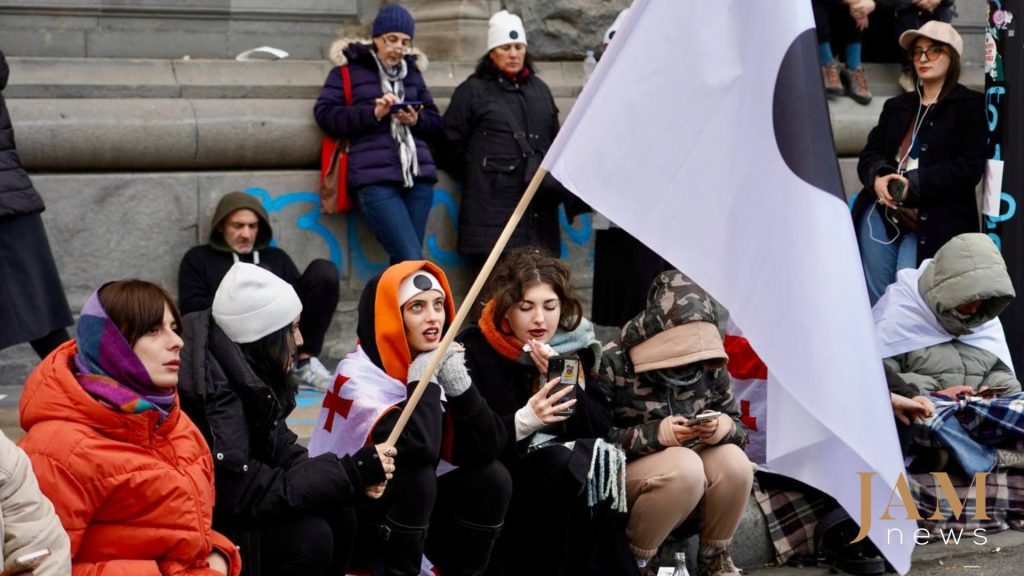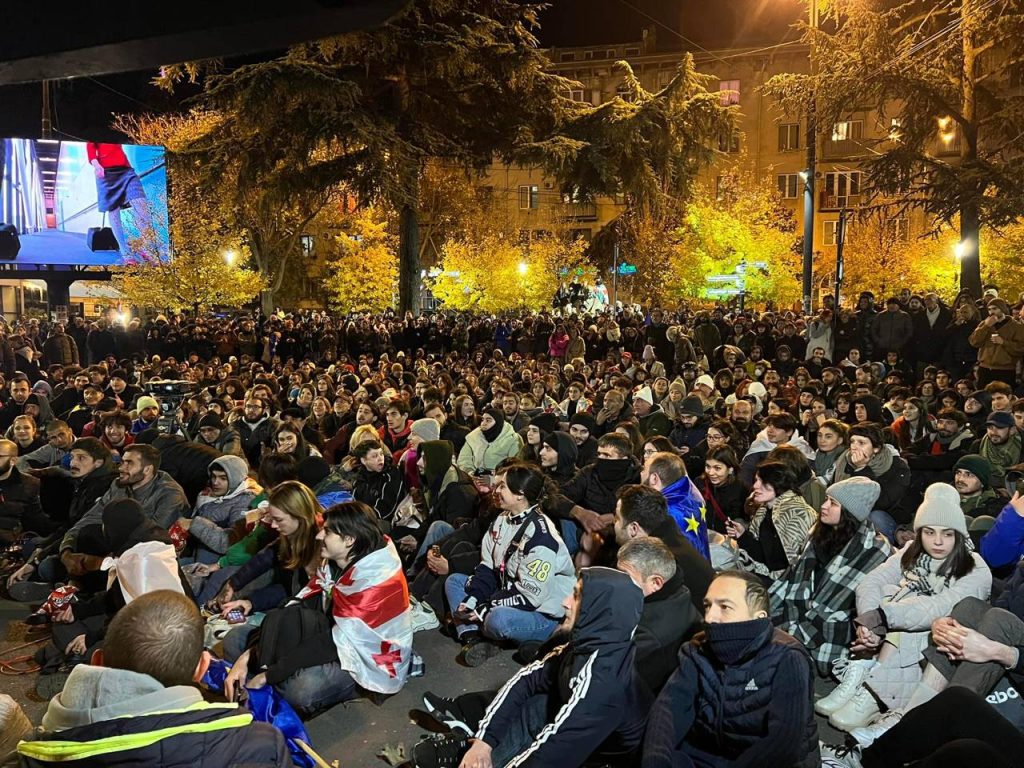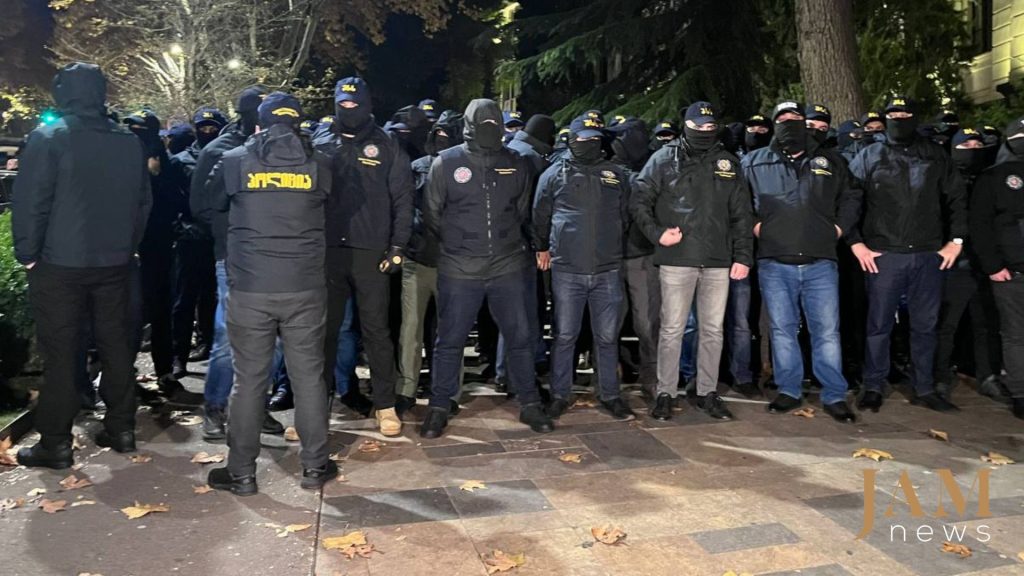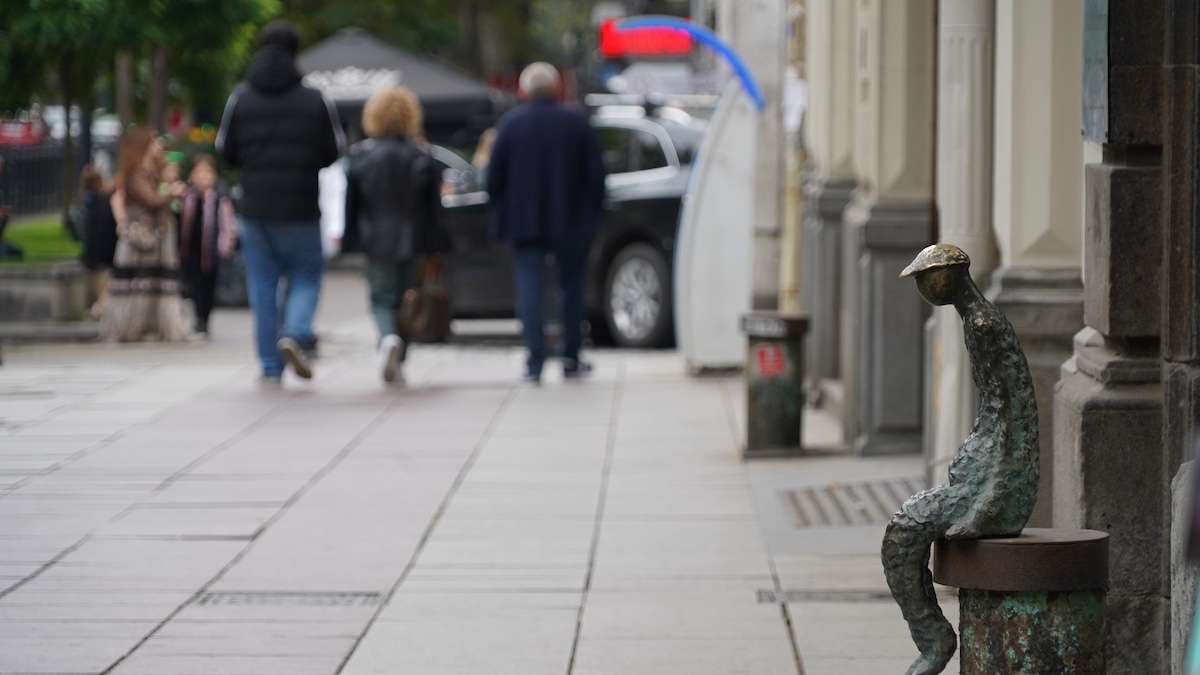Third night of protests in Tbilisi: Opposition to rethink strategy. Photo/Video
Georgian opposition replans protests
In the early hours of 20 November, police dispersed a protest on Chavchavadze Avenue in central Tbilisi. Unlike the previous night, the operation was conducted without raids, arrests, or any physical altercations between officers and demonstrators.
The protest, part of the opposition’s “resistance movement,” has been ongoing for several days. Participants are demanding the annulment of Georgia‘s 26 October parliamentary election results and the holding of new elections.
- 16 detained as police crack down on Tbilisi protest
- “We will not back down” – Opposition protests continue in Tbilisi
How events unfolded on night of 19–20 November
By the evening of 19 November, protesters had reclaimed Chavchavadze Avenue after being removed by police at dawn.
The avenue, home to Tbilisi State University and other key landmarks, was first occupied by demonstrators on 17 November.
The third night of protests saw a significant rise in numbers, with leaders and representatives from all opposition parties joining the movement.


At 6:00 in the morning, police arrived once again at Chavchavadze Avenue, informing the protest organizers that they had 15 minutes to disperse.
According to law enforcement, under the “law on demonstrations,” protests are only permitted on roadways when the number of participants necessitates it. In this instance, they claimed the crowd was too small to justify occupying the road, making it necessary to clear the roadway.

One of the protest organizers, Giorgi Vashadze, a representative of the opposition Unity – National Movement coalition, asked the police for 40 minutes to disperse, but the request was refused.
Fifteen minutes later, police pushed the demonstrators onto the adjacent Melikishvili Avenue, where the protest continued for another two hours under police observation.
At 8:00 AM, the protesters decided to take a break.
One of the organizers, opposition leader Zurab Japaridze, told the participants that they would “need to rethink and come up with something different, not what we’ve been doing here.”
According to Japaridze, the government had shifted its strategy, no longer opposing the blockade of Melikishvili Avenue, rendering the act meaningless. As a result, the organizers decided it was best for protesters to disperse for now, rest, and work on a new plan, which will be announced later in the evening.
Since the parliamentary elections on October 26, Georgia has witnessed near-constant protests led by various opposition groups and civil society organizations. The protesters have remained united around a single demand: the organization of new elections.
They argue that the official results, which awarded 54% of the vote to the ruling Georgian Dream party, were rigged. This sentiment is echoed by President Salome Zourabichvili, who filed a lawsuit with the Constitutional Court on November 19, seeking to annul the election results.
The official vote count for Georgian Dream on October 26 surpassed exit poll projections by 12%.
Additionally, local and international observers reported hundreds of irregularities during the election, including breaches of ballot secrecy, the use of fraudulent documents, carousel voting, voter intimidation, and more.
Almost a month has passed since the elections, but the international community has yet to recognize the results, calling on the Georgian government to conduct an investigation. The only European leader to endorse the parliamentary elections so far has been Hungary’s far-right Prime Minister Viktor Orbán.
Georgian opposition replans protests




















